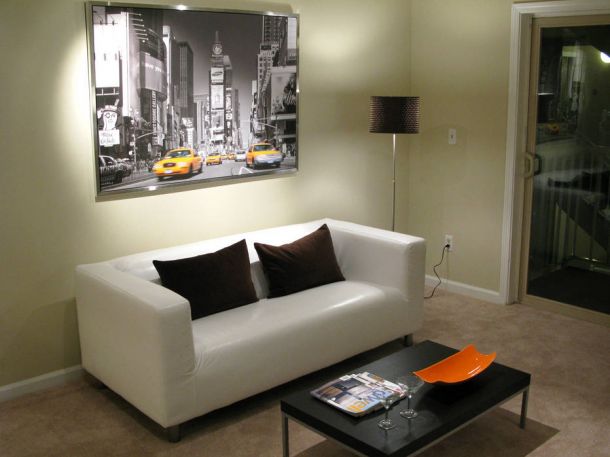
While many choose to rent for their first few years in the city, there are many internationals who prefer to settle down and buy a home right away or invest in property in the city. There are pros and cons to buying vs. renting but whichever you choose, the way can be eased by going into it with adequate preparation.
Preparation
The New York City real estate market moves quickly. Working with a licensed real estate agent will save you time and help you navigate through the complicated process of acquiring a home in New York City – you may be surprised at some of the major differences between buying in NYC and buying in your country. You will be a more informed buyer, and in the end, you will be more competitive. It is important to know that in New York City, the seller typically pays the commission and there is no additional out-of-pocket cost for you.It is suggested that you take the following steps before you start hunting for a home:
Select a real estate attorney who is licensed to practice in the State of New York and is experienced in representing homebuyers. In New York City, you are legally required to use a real estate attorney to close on all real estate transactions. If you are not able to stay in NYC for the entire purchase process, it is advisable to give your attorney “power of attorney” while you are in NYC, later it will be difficult to have this done from your country. For international investors, it is recommended to hire a real estate attorney who is familiar with the unique tax situation of internationals and who can advise you on advantages of purchasing property as an LLC or with an off-shore entity.Speak with a mortgage lender/broker and get prequalified and preapproved for a loan. This will also give you an idea of what your budget is. For international buyers, it is recommended to speak with a mortgage lender/broker who is familiar with financing options for internationals. If you are an international buyer with no US credit history, there are a few different ways mortgage lenders might lend money to you. Some banks want the buyer to put 50% down and/or they can provide a credit history from their home country, as long as the credit reporting structure is similar to the US. Other banks require the buyer to hold $100K as a liquid asset in an account with them. Still others require the applicant to establish a one year relationship prior to the application. This differs from lending institution to lending institution and not all banks will lend to international buyers.Define your criteria: Just like with renting, you’ll need to decide on a neighborhood, price range, type of ownership (co-op, condo, townhouse), size of the apartment, and building amenities. Here are some essential tips to help define your wants and needs:
- Explore different neighborhoods to determine which ones suit your needs.
- Evaluate access to transportation and commuting time to work in selected neighborhoods.
- Review building amenities and house rules in terms of your needs (washer/dryer permitted, doorman, gym, pet policy, storage facilities, etc.).
- If applicable, research schools and review school reports in selected neighborhoods.
- Prioritize your needs. Flexibility in any of these areas will increase your chances of locating a well chosen home.
Organize your finances and prepare documentation: You should make sure you have low personal debt and a good credit score in addition to at least 10% of the purchase price available in liquid assets (bank accounts, stocks, etc.). Additionally if you are buying into a condo or a co-op, you will need to prepare certain documents for presentation to the board. Halstead Property offers a more in-depth look at the documentation needed for board packages.
Differences in purchasing a condo, co-op or townhouse
One of the most important aspects of buying a property in NYC as an international buyer is identifying the type of property that meets your investment objectives.CooperativeCooperatives, or co-ops, comprise approximately 75-80% of New York City’s real estate market. When purchasing a co-op apartment, one purchases shares of stock in a corporation that owns the building and possibly the land beneath. A stock certificate representing the purchased shares and a proprietary lease giving the right to occupy the apartment are conveyed at closing. A prospective buyer is required to submit a formal application and personally interview with the board for its approval. A coop board can turn a potential purchaser down without an explanation and the seller has to start the entire sales process again.Most co-ops have lease restrictions and require shareholders to occupy their apartments as primary residences, however, normally an allowance is made for one or two years of subletting every 5 years. A prospective lessor is required to submit a formal application and personally interview with the board for its approval. For this particular reason, buying a co-op as an investment may not be suitable for investors.The corporation establishes the amount of allowable financing, the most common percentage being 80% or less. Some buildings stipulate 50% or no financing at all. CondominiumThe ownership of a condominium apartment is similar to the ownership of real property. A purchaser of a condo takes title by deed for not only the apartment but also a percentage of the building’s common areas. Each owner pays property taxes to the city and common charges to the board of managers for their individual units.The purchaser must submit an application to the board of managers which reviews this application and must either approve the applicant or exercise the condominium “right of first refusal,” which means they can instead purchase the property themselves at the same price listed in the contract of sale. A condo owner can freely lease their unit, the only restrictions that typically are imposed by the condo are the “right of first refusal,” an application fee, and the lease usually needs to be at least one year.TownhouseA purchaser of a townhouse receives ownership of real property, similar to that of a condominium. The owner is responsible for payment of real estate taxes and maintenance and is solely responsible for approving the sale of the property.New DevelopmentMany international buyers are frequently attracted to new development buildings due to their amenities, tax abatements and the ability to charge higher rents. When buying a new development property, there are extra closing costs involved. Your real estate attorney and/or real estate broker can guide you on these differences.
CondominiumThe ownership of a condominium apartment is similar to the ownership of real property. A purchaser of a condo takes title by deed for not only the apartment but also a percentage of the building’s common areas. Each owner pays property taxes to the city and common charges to the board of managers for their individual units.The purchaser must submit an application to the board of managers which reviews this application and must either approve the applicant or exercise the condominium “right of first refusal,” which means they can instead purchase the property themselves at the same price listed in the contract of sale. A condo owner can freely lease their unit, the only restrictions that typically are imposed by the condo are the “right of first refusal,” an application fee, and the lease usually needs to be at least one year.TownhouseA purchaser of a townhouse receives ownership of real property, similar to that of a condominium. The owner is responsible for payment of real estate taxes and maintenance and is solely responsible for approving the sale of the property.New DevelopmentMany international buyers are frequently attracted to new development buildings due to their amenities, tax abatements and the ability to charge higher rents. When buying a new development property, there are extra closing costs involved. Your real estate attorney and/or real estate broker can guide you on these differences.
The Purchase Process
Begin by speaking with a mortgage broker or your financial advisor. Depending on what you are looking for, finding a property can take anywhere from one day to a year. The average person sees 15 – 25 properties before deciding on one.Offer and Negotiations
When you find what you are looking for, always submit a written offer. An offer includes not only your preferences such as price, closing date, and included/excluded personal property (light fixtures, etc.), but also your qualifications as a buyer i.e.: current income, job description, net worth and debt status. Have your agent ask about assessments.ContractOnce the seller accepts your offer, the seller’s attorney supplies your attorney with the contract. Your attorney will review the contract with you which, after execution, must be returned to the seller for signing accompanied by a 10% deposit to be held in escrow until closing.Until both parties sign a contract, a seller can accept another purchaser’s offer, so instruct your attorney to proceed expeditiously. Be sure to immediately apply for a mortgage. The loan process may take up to 45 days to complete and hinges on your ability to provide all the required financial documents to your broker or banker.Board Package or Condominium applicationWhile awaiting your mortgage commitment, the condo or co-op board package should be completed. If you are applying to a co-op, the board will schedule a personal interview upon review of your application. It is crucial that you make yourself available to be interviewed by the board. If you happen to be out of the country during the scheduled interview, many co-ops will allow this interview to take place over Skype. Every board is different, but generally the meeting with the board will be held in the evening on a week night and the board’s decision is customarily made known within 72 hours.Inspection/Final Walk ThroughMake certain to check appliances, the removal of personal property and that the premises are in broom swept condition. When purchasing a new development property check if everything that was promised in the offering plan is also delivered. If there are differences, create a list and bring this list to the closing.The ClosingAt the closing, be sure to bring your driver’s license or passport, checkbook, and all certified checks as instructed by your attorney. If you cannot attend the closing your attorney can close on the property with a “power of attorney” for you. Be aware that real estate law, custom, and practices vary considerably from one location to the other, and they are constantly changing. This article is aimed to help ease the way for first-time buyers and investors through the complex and often confusing process of buying a home in New York City.

